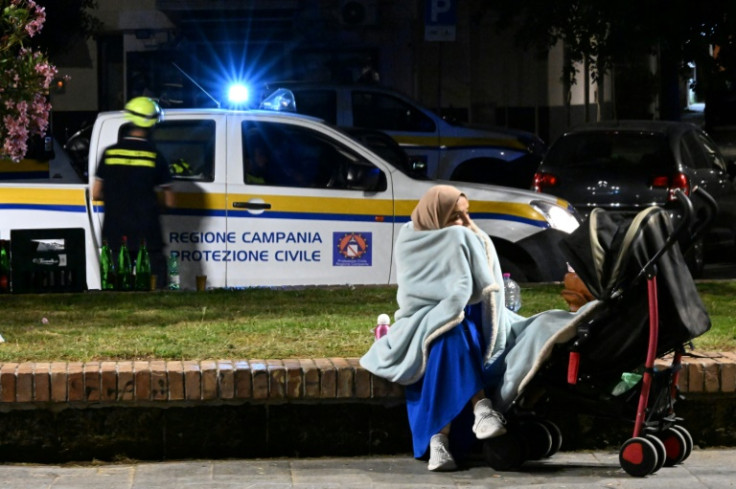Fear But No Injuries After Quake 'Swarm' Near Naples

Authorities evacuated 39 families near the Italian city of Naples and schools were closed on Tuesday after a wave of tremors of a strength not seen for decades sparked panic but no injuries.
One 4.4-magnitude quake was registered shortly after 8:00 pm (1800 GMT) on Monday evening at a depth of 2.5 kilometers (1.6 miles), according to the National Institute of Geophysics and Volcanology (INGV).
It was part of what the institute called a "seismic swarm" overnight in which some 150 quakes were recorded.
The institute's Mauro Di Vito said: "This is the most powerful seismic swarm in the last 40 years."
Many residents of Pozzuoli, a city near Naples, rushed out of their homes into the street following the tremors, which caused some damage to buildings but no casualties.
Italy's Civil Protection Department said on Tuesday morning that 39 families had been evacuated from 13 buildings following the outcome of inspections.
The mayor of Pozzuoli, Gigi Manzoni, urged people to remain calm but acknowledged it was a situation that was "stressing us all".
Four reception centers were set up overnight for people who did not feel safe in their homes, while authorities in Naples arranged to send 400 temporary beds to the area.
Schools were closed on Tuesday for inspections.
Pozzuoli is on the Campi Flegrei (Phlegraean Fields), Europe's largest active caldera -- the hollow left after an eruption.
Residents are used to the tremors but many of the 500,000 inhabitants living in the danger zone were already spooked by a 4.2-magnitude quake last September.
"We have to live with fear all the time," a Pozzuoli resident told RAI News television.
"How long will the buildings be able to hold out while (there are) all these shocks? That's what we wonder."
Emergency services reported cracks and pieces falling from buildings after Monday's quakes.
Amateur video from a supermarket in Pozzuoli showed bottles strewn across the floor after being shaken off shelves.
The INGV said it would continue to monitor the caldera.
"Other seismic events cannot be ruled out, including ones of a force similar to that which has already been recorded during the current swarm," it cautioned.
The eruption of Campi Flegrei 40,000 years ago was the most powerful in the Mediterranean.
A resurgence of seismic activity in the early 1980s led to the evacuation of 40,000 inhabitants.
Specialists, however, say a full-blown eruption in the near future remains unlikely.
The INGV recalled on Tuesday that in the 1980s, there were more than 1,300 seismic events a month and hydrothermal activity caused the ground to lift by nine centimetres (3.5 inches) a month.
By contrast some 450 seismic events have been recorded in the last month and the lifting speed remained steady at two centimeters a month.
© Copyright AFP 2024. All rights reserved.





















